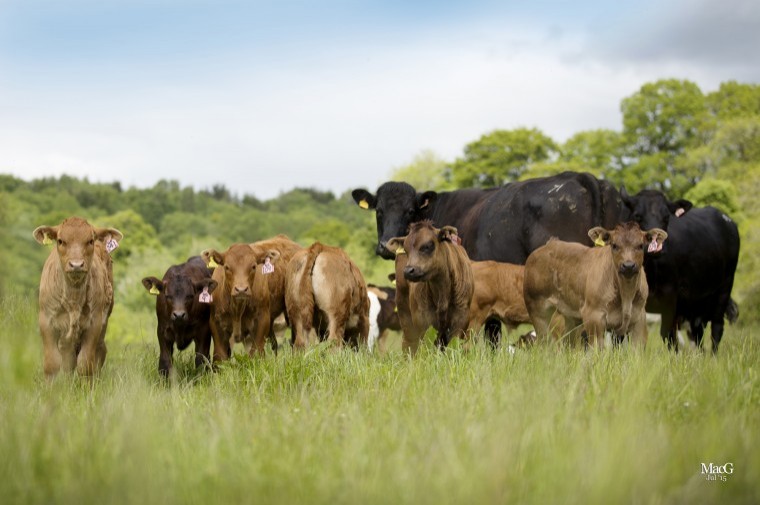In a first for the UK beef industry, Genomic Breeding Values (GEBVs) for three new Female Fertility traits and a new Calf Survival trait are being launched by the British Cattle Limousin Society (BLCS) and Scotland’s Rural College (SRUC) in July.
Following closely behind the breed’s introduction of Carcase Trait GEBVs last year, this development represents another important milestone for commercial and pedigree users of Limousin genetics. Because of the Limousin breed’s dominance in the suckler herd, it is anticipated it will have sector-wide impact. In combination with the already established Carcase Traits GEBVs, these new Female Fertility and Survival GEBVs offer good opportunity for significant financial gain; the use of identified high performance genetics to drive maternal performance will yield direct returns in suckler herds and will create increasing and new trading opportunities for all Limousin stock. The traits focus on key economic drivers; Age to First Calving, Calving Interval, Cow Longevity and Calf Survival. All are critically important as the industry continues to move to one being driven even more by efficiency and profitability.
John Phillips, a Limousin producer and chairman of the BLCS said: “Recent market changes are seeing increasing demand for medium-sized, high performing dams. Limousin can deliver these and the new GEBVs present quantifiable financial opportunity for all commercial producers to target the key performance drivers in their herds.
“Such opportunity will come not only in the form of reduced costs of production through increased calf returns and lower replacement costs for breeding heifers. Openings to generate new income streams are now there for the taking, as well as opportunity to increase the rate of genetic improvement in producers’ own herds,” continues Mr Phillips.
The delivery of these GEBV’s represents achievement of another major goal of the BLCS’ Breeding Improvement Plan, the objective of which is to invest in targeted areas of the breed’s performance to ensure it delivers market-focussed genetics. The pathway these new GEBV’s offer delivers a valuable opportunity to investigate and find breeding solutions for traits that have not been possible until now. Further development for the breed in to areas such as feed efficiency, meat quality and animal health are now possible & ongoing.
Mr Phillips continued: “Producer investment in the breed must yield a return and, through the ongoing roll-out of this Improvement Plan, the Society’s objectives are firmly anchored around this principal”.
The first Maternal GEBVs are scheduled for release on 13 July. The research was completed by in partnership with SRUC and funded by InnovateUK and BBSRC.




